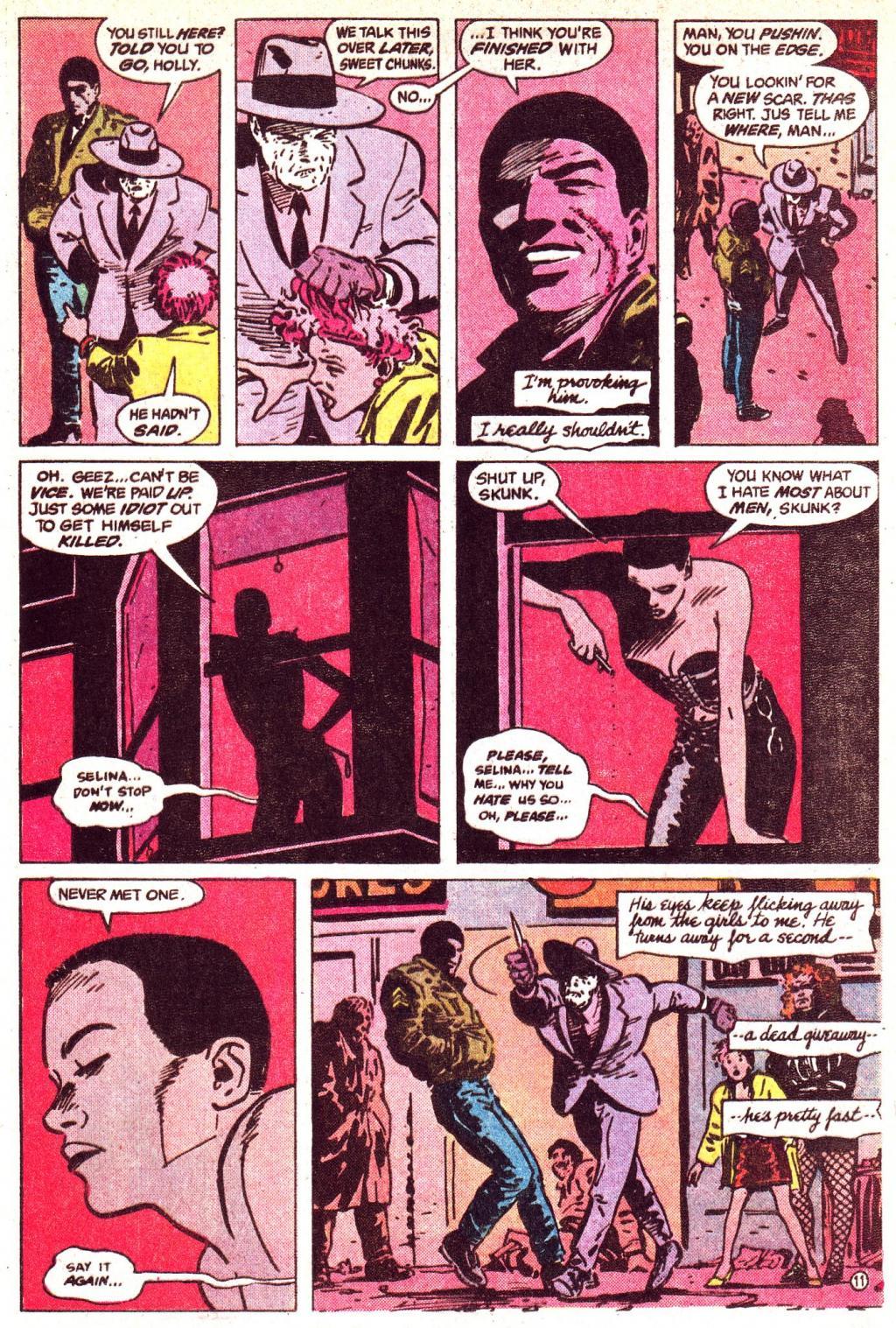history79 (![[personal profile]](https://www.dreamwidth.org/img/silk/identity/user.png) history79) wrote in
history79) wrote in ![[community profile]](https://www.dreamwidth.org/img/silk/identity/community.png) scans_daily2015-11-21 05:39 pm
scans_daily2015-11-21 05:39 pm
Batman: Year One - Part 1

The A.V. Club: So you actually consciously set out to change things in the comics industry?
Frank Miller: Well, I set out to remark upon them. And seeing how all these heroes had been castrated since the 1950s, and just how pointless they seemed to be... In this perfect world of comic books, which was what it was back then, why would people dress up in tights to fight crime?
The A.V. Club: Because there wasn't anything bad enough going on back then to justify that extremism?
Frank Miller: It was just a bunch of goofy villains. It was 1985 when I started working on this, and I thought, "What kind of world would be scary enough for Batman?" And I looked out my window.









no subject
Of course, that wouldn't be a very exciting comic book.
no subject
no subject
The problem with the argument here is the assumption that alone would clean the streets of crime, which is as likely to happen as Batman cleaning them up.
no subject
I think it is really just my issue - at some point, the idea of superheroes, especially nonpowered or low powered superheroes, fighting street crime just stopped making sense to me - it seems like such an impractical approach.
I seem to remember a Spider Man comic where he is teaching younger characters about going on "patrol", and they point out all the flaws in that approach, which I thought was entertaining.
Of course, that's really my problem, not the comics, since it has long been a staple of the superhero genre!
no subject
I'd actually disagree with your point about more street level superheroes, because as the most recent Mighty Avengers series argued, what else are they going to do? Sure a character like Tony Stark or Bruce Wayne can help through financial and other means (and are frequently shown doing so) but for characters who are just sorta tough and/or good at punching things, their skills aren't really useful for anything other than punching things, so they might as well just punch the people who deserve it.
no subject
no subject
Heck, in their first confrontation Joker was about to poison Gotham's water supply. Wayne Foundation can't help the city if everybody is dead.
no subject
I totally agree that when super villians are introduced, super heroes make more sense.The interesting thing for me is that, usually, Bruce Wayne's decision to become batman isn't about super villians, its a response to his parents being killed in a random murder. So he wasn't thinking "I need all this training and equipment to fight super villians." He was thinking he needed it to address street crime. This story follows that same idea - he's not thinking about fighting super villians, he's just walking around beating up criminals. Of course, it leads to stories that people enjoy reading, but it always seems odd to me.
no subject
Basically, Bruce Wayne focuses on education and economic development in Gotham City. And he dressed like a bat and punches criminals in the face because he has a lot of anger issues.
And he treats other superheroes like crap because... I don't know. He just does. (Can you tell that bugs me?)
no subject
Unless it's the Miller version, where All Star Batman heavily implied it's because he's jealous of their superpowers.
no subject
no subject
no subject
no subject
Hypothetically you could say the same about Christopher Nolan's Batman films and how other superhero films tried to copy his approach.
no subject
no subject
O'Neil's Batman was progressively more mature in the traditional sense, while Miller's Batman (particularly in DKR) was more clownish in how seriously it wanted people to take it. Year One is largely better in that it was written early in his career and didn't become host to the usual Miller-isms (that was what Daredevil was for).
no subject
no subject
no subject
I have a lot of issues with Miller's other Batman work (even Dark Knight Returns with its REALLY right wing leanings), but Year One pretty much acted as a good springboard for later, better series. Such as the Brubaker/Cooke Catwoman series (which is still one of my all time favourites), Gotham Central and Scott Snyder's Batman stuff.
And although the legislation in the 1950s did "castrate" a number of heroes, it also enabled them to go outside the box and try new things. If it wasn't for the CCA we wouldn't have Batgirl, the Martian Manhunter, Barry Allen, Hal Jordan etc. etc.
Though it did lead to Catwoman to be retired for a time, for reasons I'll post shortly...